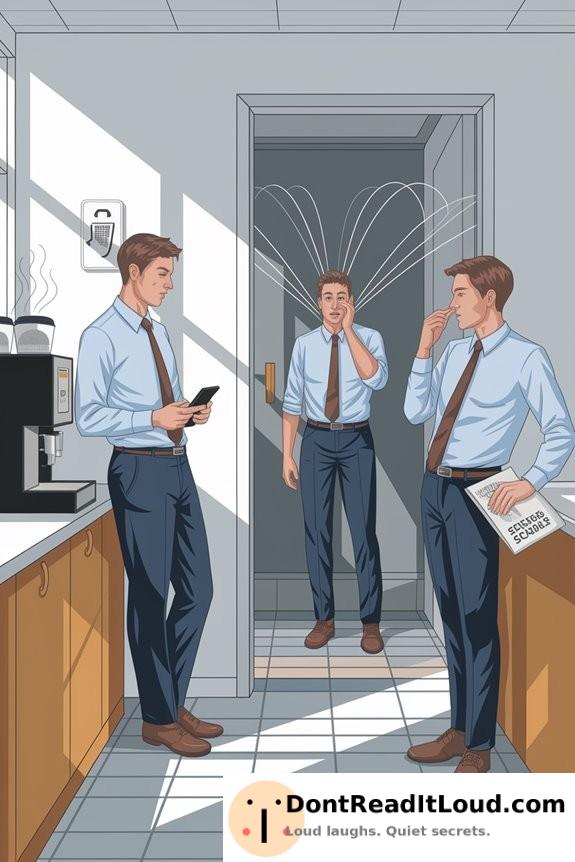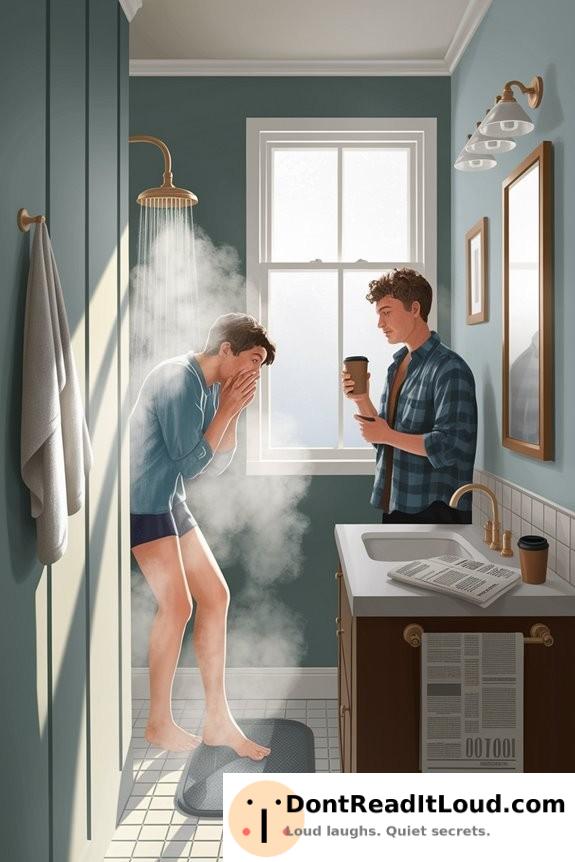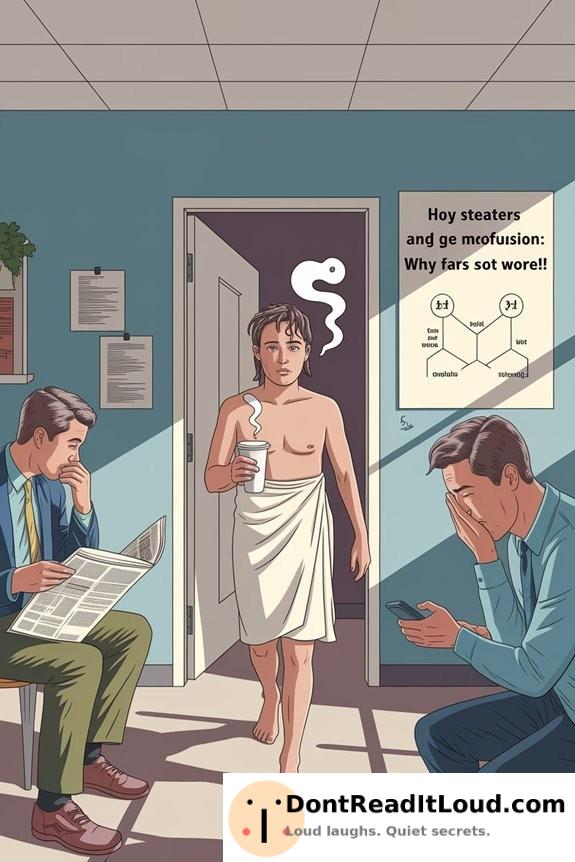
When you fart in the shower, the warm steam and humidity trap and amplify the odor, making it reach your nose faster and more intensely. Heat causes gas molecules to spread quickly, while the moisture heightens your sense of smell. Because the shower is such a small, enclosed space, the smell lingers longer and doesn’t escape easily. That’s why farts seem especially pungent when you’re showering.
The Science of Smell: How Odors Travel

When you smell something, you’re actually detecting tiny airborne molecules that travel from their source to your nose.
These molecules interact with special cells called olfactory receptors inside your nasal cavity. When a molecule connects with a specific receptor, it triggers a signal to your brain, which then interprets the smell.
This is how your brain recognizes different scents. The stronger the concentration of molecules, the more intense the smell.
The Role of Steam and Humidity

Because showers fill the air with steam and boost humidity, they actually change how smells behave.
When you’re surrounded by steam, the effects are immediate—moist air helps trap odor molecules, causing them to linger. This humid environment slows down how quickly those molecules disperse, so smells stay noticeable longer.
Higher humidity also keeps your nasal passages moist, making you more aware of even faint odors. In the shower, these factors combine to intensify scents, making even a small fart seem much stronger than normal.
Warm Air and Increased Volatility

Alongside humidity, the warm air in your shower makes farts smell even stronger.
When your bathroom heats up, it does more than just feel comfortable—it causes the gas molecules in your fart to become more active. Warm air lets those smelly compounds evaporate and spread quickly. This means the smell reaches your nose much faster.
In cooler air, gases linger near the source, but shower heat releases them easily. So, every time you fart in a hot shower, you’re making that odor even more noticeable.
Confined Spaces: Why Size Matters

Step into a small shower stall, and you’ll notice odors don’t have far to travel.
In confined spaces, fart molecules quickly fill the limited air around you. With so little room, those pungent gases hang in the air and build up fast.
Unlike open rooms, a shower’s tight quarters keep everything close, which makes even faint smells seem stronger. You can’t count on fresh air or extra space to help clear the scent.
Instead, you’re surrounded, making every whiff seem more intense. That’s why, in a tiny shower, unpleasant smells become much more noticeable—because confined spaces trap and intensify odor, leaving you nowhere to hide.
How Water Vapor Enhances Odor Detection

Trapped air isn’t the only reason shower farts seem so much worse—steam plays a big role, too.
When you shower, hot water produces vapor filled with tiny water molecules. These molecules latch onto smelly compounds, helping odors linger in the humid air.
The increased moisture also heightens your sense of smell, making odors seem even stronger. So when you inhale, you experience the full force of those scents, thanks to the combined effects of water vapor and your sensitive nose.
The Impact of Hot Showers on Gas Molecules

When you turn up the heat in the shower, the rising temperature energizes gas molecules, including those behind unpleasant odors.
As it gets hotter, gases expand and odor molecules disperse more rapidly. Higher temperatures also make these molecules more volatile, so smells reach your nose faster and in stronger bursts.
The confined, steamy environment intensifies this effect, making it hard to avoid the amplified odor.
In short, hotter showers let smelly gases move more freely, making every whiff much tougher to ignore.
Why Shower Surfaces Don’t Absorb Smells

While the hot, steamy air helps odors spread quickly, the shower itself doesn’t trap them.
Most shower walls, floors, and doors are made from nonporous materials like ceramic tile, glass, or plastic. These surfaces prevent gas molecules from soaking in, so odors aren’t absorbed.
Instead, smells circulate within the enclosed space. Unlike carpets or fabrics, which can hold onto odors, your shower’s smooth surfaces keep everything airborne.
As a result, scents can seem to linger, since nothing in the shower captures or neutralizes them.
Human Sensitivity to Scents in the Bathroom

Because your sense of smell sharpens in small, enclosed spaces, you notice odors more strongly in the bathroom.
The limited airflow means scents linger, and your olfactory receptors—those little sensors in your nose—work overtime.
When you’re in a steamy shower, the humidity helps volatile compounds travel more easily to your nose, making every whiff seem stronger.
Even if you keep the bathroom spotless, your nose naturally detects scents more acutely here.
Conclusion
So, next time your farts seem extra smelly in the shower, you’ll know why. The humid air, small space, and warm temperature all boost those odors. With nowhere for the smells to go, you’re stuck with them. It’s a simple reminder of just how noticeable your own bodily gases can be in a steamy bathroom.



